
🧵Day 4: Nicola Sturgeon is Scotland's longest serving First Minister. There will always be highs and lows in any govt, but let's analyse whether her time has seen fundamental change. Today I'm looking at openness and the centralisation of power 1/
Nicola Sturgeon was elected as First Minister promising a government like no other. And in some important regards she has exceeded everyone's expectations. She has presided over a creeping culture of secrecy and centralised control. 2/
Let’s look at secrecy through the story of ferries - yes, we have to – but on the upside I’m not going to focus on trains! It all started so promisingly. A delighted FM, happy workers, a prominent Indy supporter entering into a ferry deal, and lots of hard hats. 3/ 

The ship was even ‘launched’ by the First Minister. So far so good. But what was being concealed was that for the ship to be launched everyone had to pretend that things were fine, they even had to have painted on pretend windows 4/
It has taken the Scottish govt longer to build two relatively small ferries than it took the UK govt to build two giant aircraft carriers – much of the work on the same river. The ferries’ cost has gone from £97m to £250m and will be at least 5 years delayed. 5/
But this isn’t a story of simply screwing up a major transport lifeline to Scotland’s islands. It's about the culture of secrecy that the FM created about a project that she was invested in & went to great lengths to conceal. As the public demanded info, the SNP closed ranks 6/
They’re accused of lying, covering-up, they ‘lost’ and then ‘re-discovered’ crucial documents, blocked FOI requests and even forced their MSPs to vote in parliament to block crucial details being released. 7/
And the two unused ferries with their painted-on windows lie rusting on the Clyde, and still the SNP refuse to come clean on why they signed the original contract terms. The anatomy of abject failure is laid bare in this Audit Scotland timeline. 8/ 

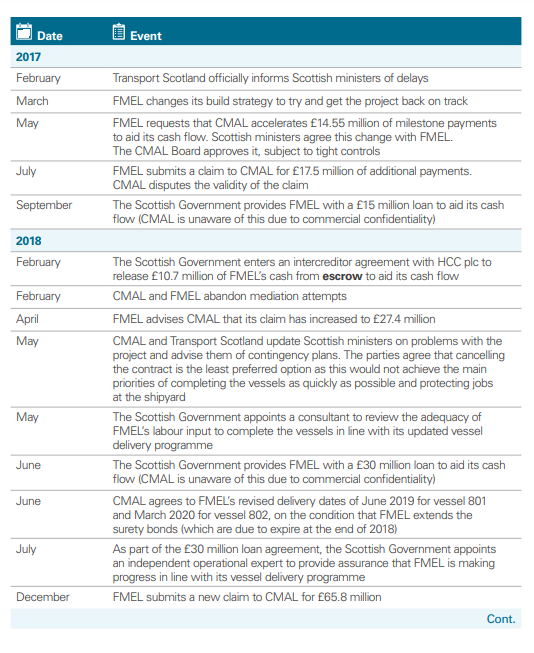
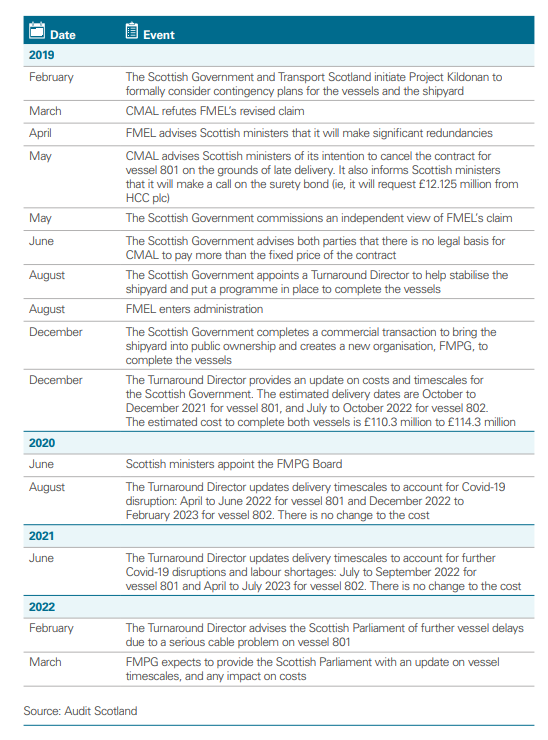
Anyone interested in Scot politics knows the SNP centralised power in a small no. of ministerial offices. Police, Councils, economic delivery, health, school curriculum all increasingly centralised. But have you heard of the Coronavirus (Recovery & Reform) (Scotland) Bill? 9/
This Bill would allow ministers, in an emergency, to “modify or amend” *any* Act of Parliament *without* legislative scrutiny. At the stroke of a First Ministerial pen, the said emergency would be (a) defined and (b) used to justify implementing these powers.10/ 

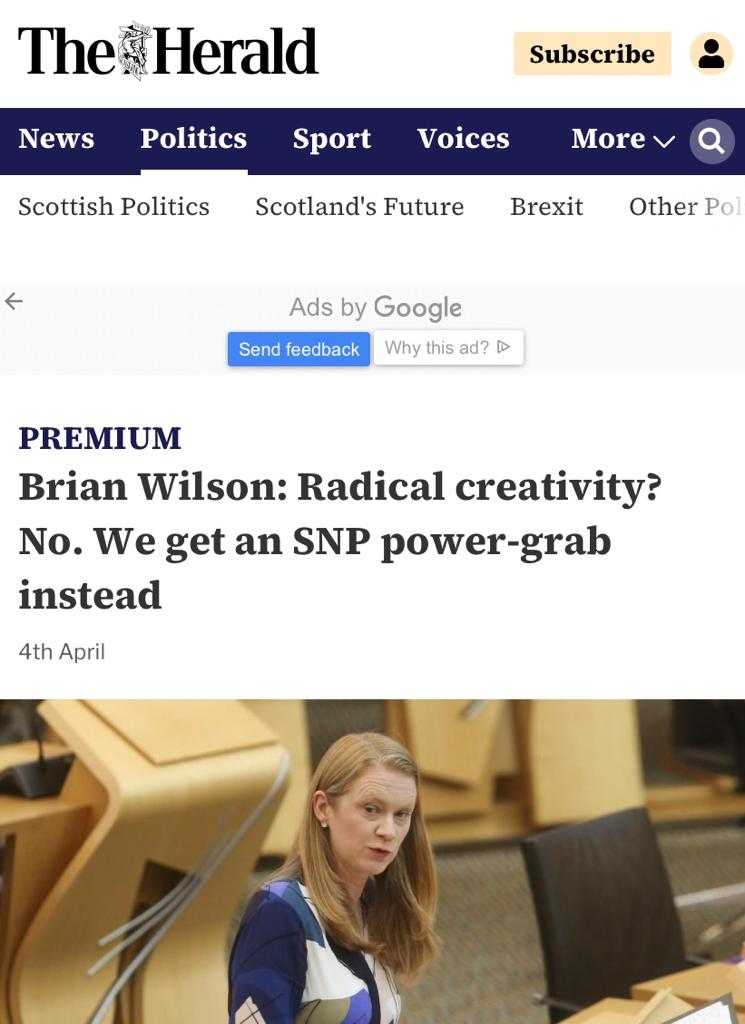
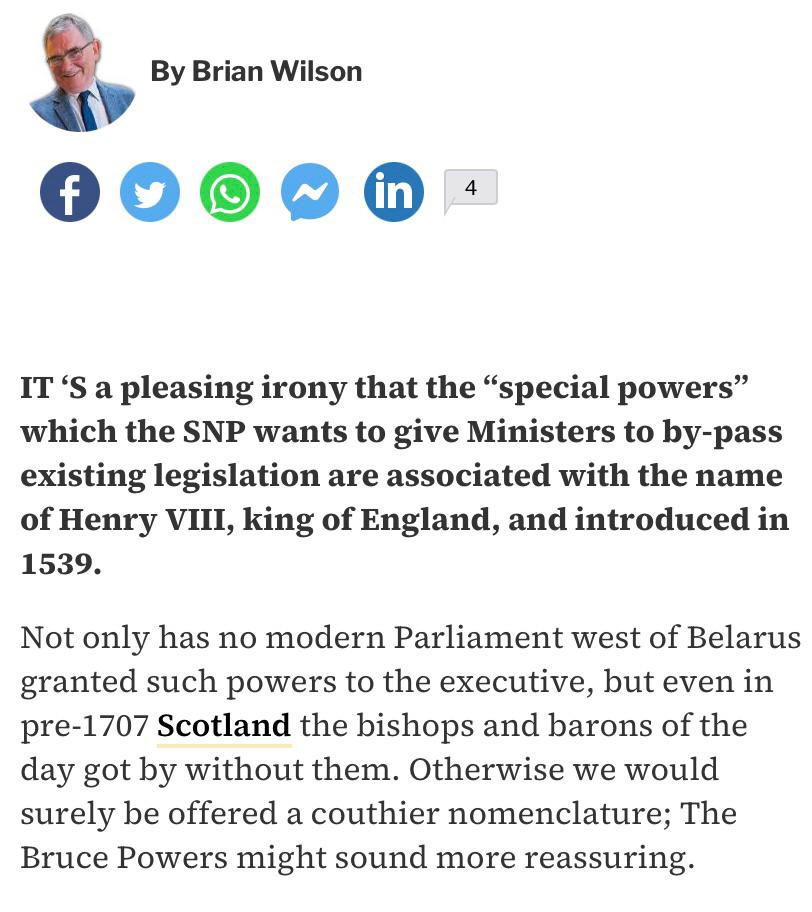
Legal academics warn that this is a serious threat to civil liberties & democratic processes. Holyrood has weak ‘checks and balances’, backbench SNP MSPs lob softballs at ministers & there’s no 2nd Chamber to force a rethink. A majority can get what a majority wants, no matter11/
4,000 orgs. & individuals responded to a consultation; 90% opposed. It’s a dramatic & undemocratic power-grab. A good question of whether a power should be granted to a minister is ‘Would I be happy if another party other than the one I support held powers to modify any Act?’ 12/
And for those annoyed that I said many SNP MSPs see themselves as cheerleaders rather than scrutineers, have a look at this video. The FM again answers a pre-arranged patsy question that wasn’t even asked. The MSP just goes along with it.13/
Back to FOI, surely such concealment of information on ferry contracts is a one-off, right? But there’s now a pattern from Nicola Sturgeon treating information as though it was the SNP’s property. 14/
During Covid when Scotland needed accurate info the most, the Scottish Health Minister tried to suspend FOI legislation. This would have allowed ministers & NHS to operate in secrecy during the pandemic. For all their many faults, no similar move was even attempted by UK govt.15/ 
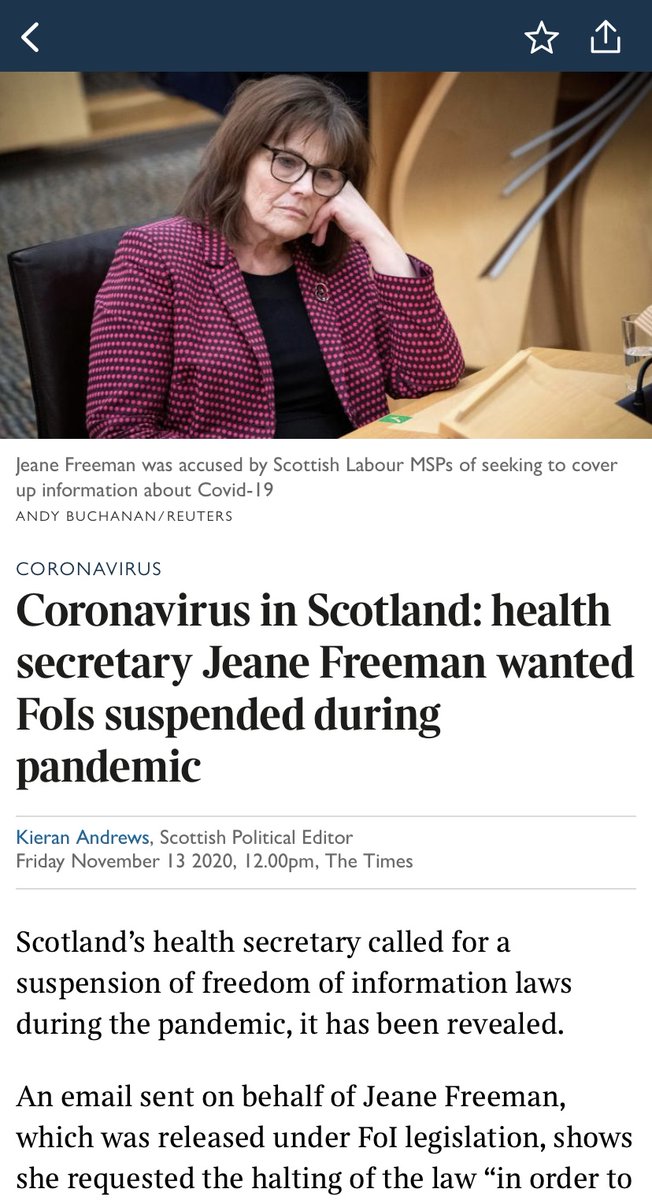
They planned to go ahead until the Information Commissioner said it could set an “international precedent” & “damage Scotland's reputation”. They were only stopped when all opposition parties refused to back this power-grab. 16/
And there’s more on avoiding scrutiny, the SNP introduced a 2-tier FOI system until again, they were exposed & forced to change. According to the independent Info Commissioner, some who submitted FOIs to the govt were treated differently “because of who or what they are” 17/ 
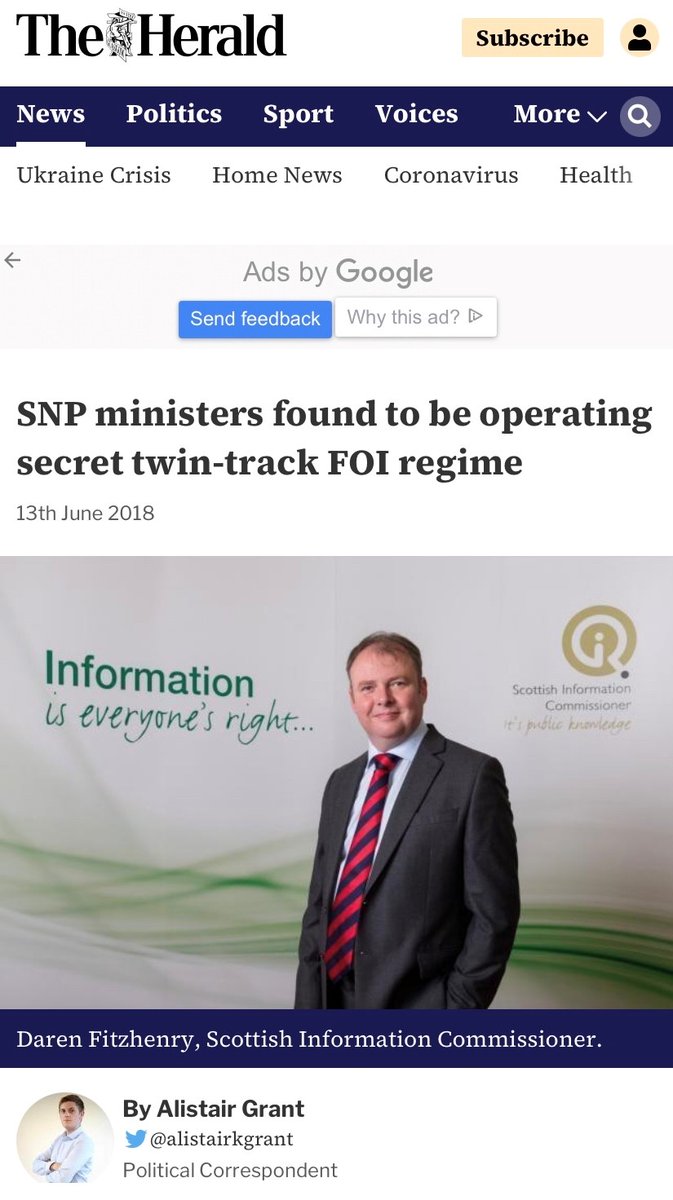
A light was also shone on the role of SNP SpAds. In one dreadful e.g., the Commissioner revealed an FOI request about discharge of covid patients from hospitals to care homes had taken 8 months to answer because "the case sat with special advisers for at least three months" 18/
And remember that investigation into Alex Salmond – the man the SNP wanted to be the first Prime Minister of an independent Scotland - a committee of MSPs found that Nicola Sturgeon had misled parliament about what she knew. 19/ 
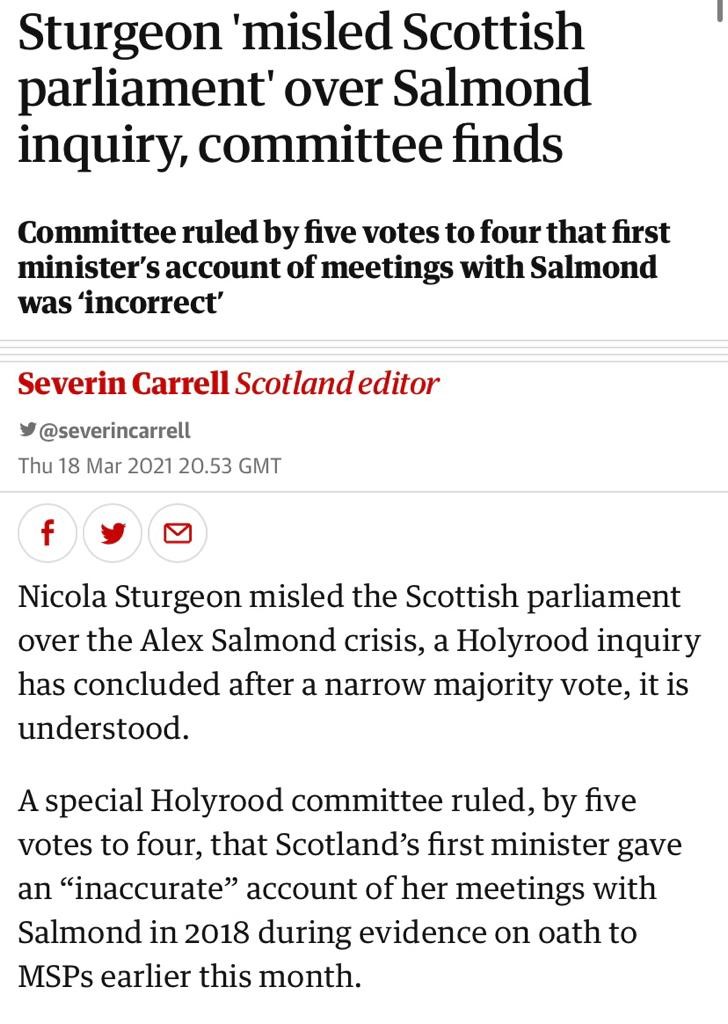
And what about being open about indyref2? Shortly after becoming FM, Nicola Sturgeon tried to block the release of an explosive indyref2 memo from the nation’s top civil servant. The memo said that planning for a new ref may cause “deprioritisation” of other policy areas 20 

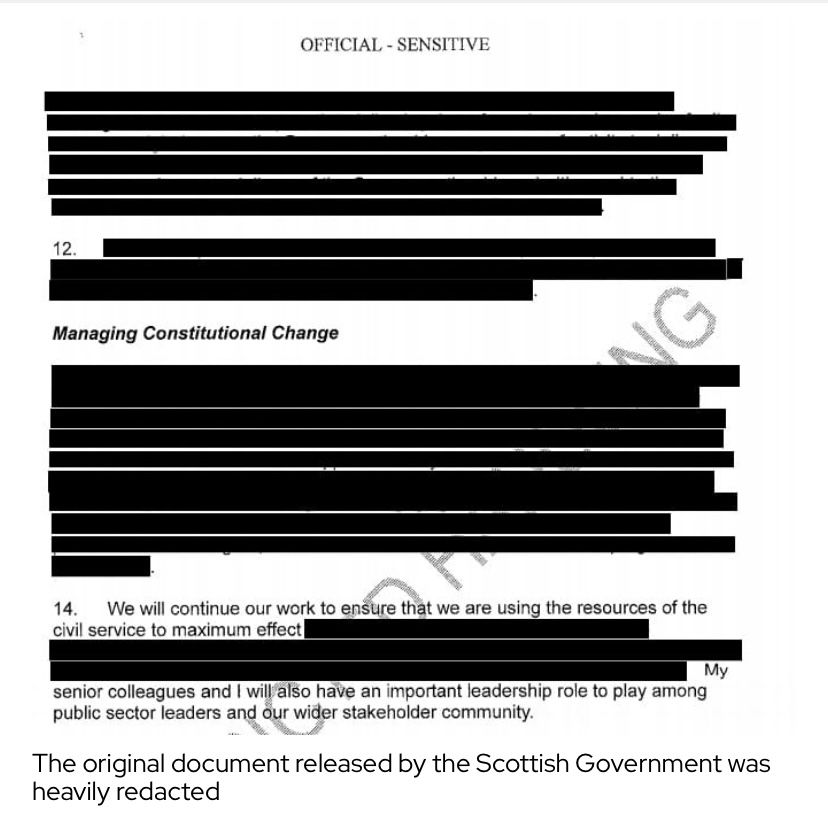
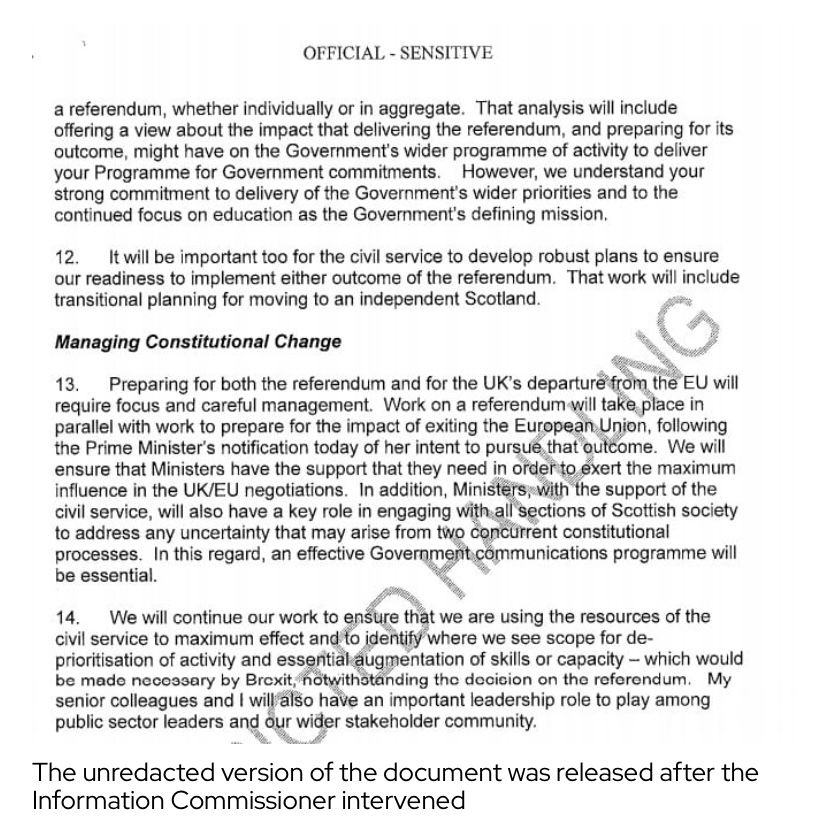
When a nationalist refuses to release information about independence you know it’s not good news that they’re trying to hide from Scotland. Isn’t it a shame that we can’t just FOI what their post-independence currency plan might be! Final day tomorrow 👋21/21
• • •
Missing some Tweet in this thread? You can try to
force a refresh



